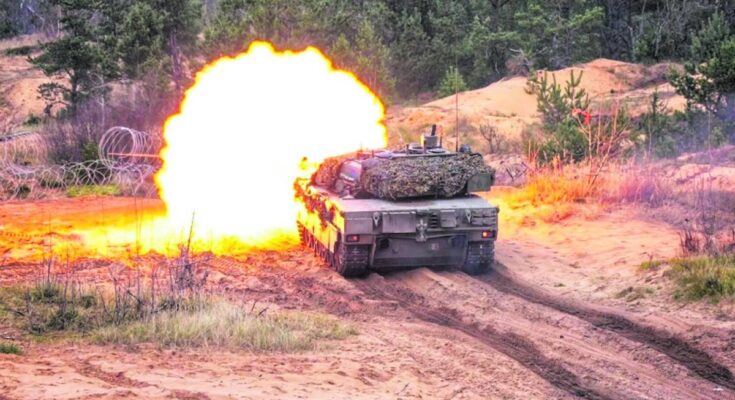“I firmly believe that if NATO had been formed earlier, there would have been no Second World War. I also believe that strengthening NATO is the best hope of preventing a third war.” These are the words that Field Marshal Viscount Bernard Montgomery spoke to the students of the new NATO Defense Academy in 1953.
This is clearly a highly biased office and Montgomery, the alliance’s first deputy commander, is a highly biased opinion but provides a good illustration of the strong beliefs espoused by the founders of the North Atlantic Treaty Organization and its first civil and military structures. They saw the unification of European and North American democracies in a system of collective self-defense as the best way to prevent disaster in Europe. And clearly the disaster was caused by the surrender to the Soviet Union or the atomic bomb.
And the results, however you judge them, are extraordinary: NATO is the longest-lasting international alliance in history, the only comparable precedent being the Delian – Attican League, a union of city-states led by Athens, formed against Persia in 478 BC and dissolved seventy-four years later.
But NATO is unlikely to disintegrate given the recent entry of Sweden and Finland, fearing a Russian threat. Let’s be clear, this – as even its most staunch supporters admit – is a deeply flawed intuition, beset by chronic divisions and where decision-making, based on consensus, can sometimes lead to no decision-making at all. Nonetheless, since the treaty was signed, the Alliance has proven to be highly effective in ensuring that not an inch of its territory in the North Atlantic region falls into the hands of foreign powers. The result: a very long peace, perhaps difficult to distinguish from the Cold War that is now returning and heating up.
This is a long story told by Peter Apps in Against the End of the World. NATO Biography (Luiss, 566 pages, 25 euros). Apps, originally a soldier, then a war reporter and then a writer, was director of the 21st Century Studies Project, a renowned British think tank run by veterans that researched major geopolitical issues. In his essay he examines NATO’s course and call, providing a key to better understanding the present.
For example, underestimating the dangers coming from the East. This can be seen from the current outbreak of war in Ukraine.
Admiral Robert Bauer, who is chairman of NATO’s military committee, summed it up this way: “For many years, time was on our side… We used to think that if we had reciprocal relationships with the countries with which we trade and economic interdependence, there would never be war. That turned out to be wrong.”
This is nothing new. NATO was born precisely from an error of underestimation. Churchill wrote to Truman on May 12, 1945: “I understand that half of America’s forces in Europe have begun to move towards the Pacific theater… In a short time, our military power on the continent will disappear, except for the simple use of force to control Germany… Meanwhile, what will happen to Russia?”
But Truman found Britain’s strongly anti-Soviet stance annoying. A position immediately adopted by the new Labor Foreign Secretary after Churchill’s fall. If Churchill even mentioned making plans for Britain to attack the Soviet Union first, Ernest Bevin immediately put pressure on the US to make a defensive treaty. A long diplomatic process that resulted in the creation of NATO on April 4, 1949. We went from American disinterest to the Marshall Plan and from the Marshall Plan to the airlift to prevent Berlin from collapsing under Soviet siege.
This is just one of many stories told by Apps that follow the development of NATO from De Gaulle’s claim of independence – which in many ways saved Europe – to Reagan’s choice to raise the stakes in the cold conflict with the Soviets, from the fallout of the Cuban crisis to NATO intervening after the fall of the Berlin Wall.
Until now NATO, which has changed from the role of world policeman to the new stronghold in the East. With challenges so great that for the first time NATO failed in its task, namely fighting “the end of the world”.



